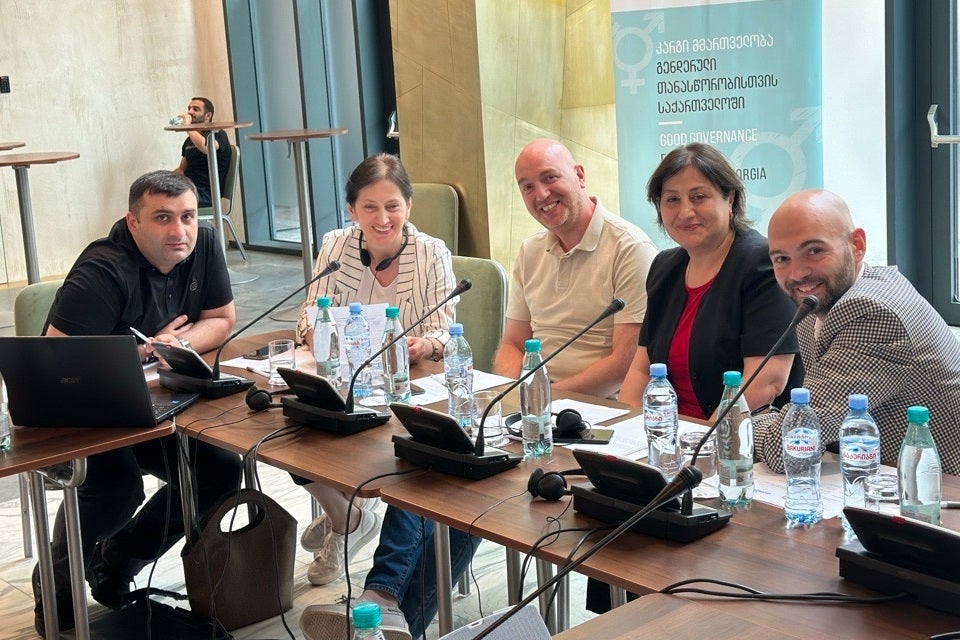Georgia takes major step towards institutionalizing gender-responsive budgeting
Date:

In a significant move towards achieving gender equality, Georgia has made substantial progress in integrating gender considerations into public finance management (PFM) and budgetary processes. In 2024, the country reached a key milestone in advancing gender equality through a reform supported by UN Women, contributing to the realization of Sustainable Development Goal indicator 5.c.1.
With direct technical and financial assistance from UN Women, Georgia’s Ministry of Finance developed and implemented a gender tagging methodology. This new system enables State spending units to identify, classify and track budget allocations and expenditures that promote gender equality within the country’s electronic budget system.
As part of the initiative, UN Women facilitated a series of trainings on gender-responsive budgeting, focusing specifically on the new gender tagging methodology. These trainings, aimed at equipping public servants with the necessary skills to incorporate gender equality into budgeting practices, strengthened the capacities of 204 public servants from five key government institutions. These included the Ministry of Environmental Protection and Agriculture, the Ministry of Regional Development and Infrastructure, the Ministry of Economy and Sustainable Development, the Ministry of Education, Science and Youth, and the Ministry of Labour, Health and Social Affairs.
Through interactive workshops and group discussions, participants were able to develop practical skills for creating more inclusive and equitable budgets.
As a result of these efforts, 19 programmes and 18 subprogrammes were tagged as gender relevant during the submission of the 2025 budget proposals. This represents a tangible step towards ensuring that gender considerations are embedded into Georgia’s national budgeting process.
A crucial milestone in this achievement was the Public Expenditure and Financial Accountability (PEFA) Gender-Responsive Public Finance Management (GRPFM) assessment, conducted by the Ministry of Finance with support from UN Women and the World Bank in 2022. The assessment identified critical gaps in the PFM system and provided a framework for gender-responsive budgeting reforms, thereby paving the way to gender-responsive reforms in budgetary processes.
“This initiative is a major step forward in incorporating gender equality into Georgia’s budget cycle,” said Natia Gulua, Head of the Budget Department at the Ministry of Finance of Georgia. “The adoption of the Gender Tagging Methodology will improve the consideration of gender equality issues during budget planning.”
This reform is part of UN Women’s broader efforts to support gender-responsive governance in Georgia. By enhancing the capacity of public servants to integrate gender perspectives into budgeting processes, the initiative contributes to the development of more inclusive and equitable governance systems and processes in the country.
The gender-responsive budgeting initiatives were carried out within the framework of two UN Women projects: “Good Governance for Gender Equality in Georgia” (GG4GEG II), supported by the Norwegian Agency for Development Cooperation, and “Women’s Increased Leadership for Democracy in Georgia” (WILD), funded by the Swiss Agency for Development and Cooperation.